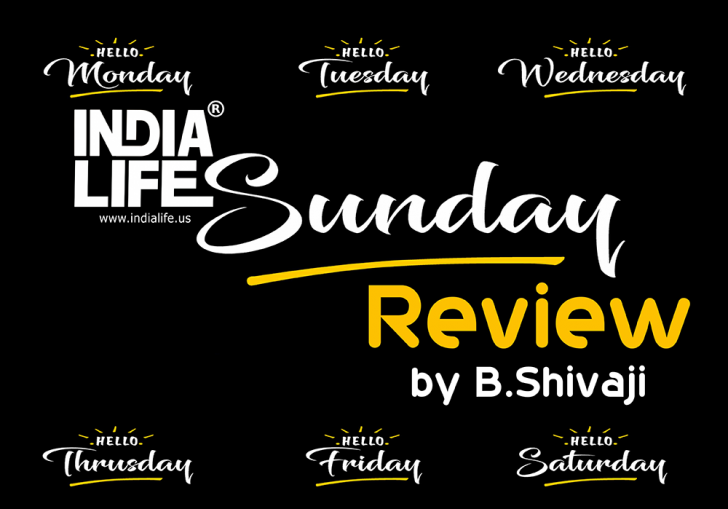Headlines
IndiaLife Sunday Review by B.Shivaji

Beacon of democracy As the United States celebrates 244 years of Independence today, after a gap last year due to the pandemic, a record 52,291 new cases were declared on July 1, about 1,000 more than the previous day. The U.S. is the worst-hit nation globally and accounts for about a quarter of the more than 11 million coronavirus cases world-wide. After a vicious election campaign that saw a divided nation, Joseph Robinette Biden Jr was declared as the 46th President of the United States, and sworn in earlier this year after many anxious moments. The celebrations and parades across the country to mark the voting of the Second Continental Congress to approve a resolution of independence may not witness the same vigour of yesteryears, and we can look forward to mark the occasion on a much subdued manner. Compared to the United States, India is a young nation and has much to learn from the country in terms of democracy. The free press and the freedom to express one's opinion fearlessly are engraved in the Constitution of the United States. The First Amendment (Amendment I) to the United States Constitution prevents the government from making laws which regulate an establishment of religion, or that would prohibit the free exercise of religion, or abridge the freedom of speech, the freedom of the press, the freedom of assembly, or the right to petition the government for redress of grievances. Alas, the media in India has been subdued of late, hesitating to question the Government of India in key issues, be it the fatalities due to coronavirus or the runaway prices of fuel, fearing repercussions. There are but a handful of media establishments that do not toe the official line and they are paying the price, be it losing out on advertisements or harassment at the hands of the authorities. Compensation for COVID-19 victims India’s National Disaster Management Authority had to face the music of the Supreme Court of India when it was criticized for failing in its duty to recommend adequate compensation to the families of those who had lost their lives to COVID-19 pandemic. The authority was given six weeks to frame guidelines for fixing the ex-gratia meant for these families. In its observation, the court said, “The National Disaster Management Authority (NDMA) failed to perform its statutory duty… ex-gratia assistance on account of loss of life is part of minimum standards of relief which has to be provided to persons affected by the disaster – in the present case COVID-19 pandemic.†The Supreme Court of India has of late been very proactive, be it in issuing directions regarding providing free vaccines against COVID-19 or in providing compensation for kin of the victims of the pandemic. One can’t but wonder whether the respectable court is making amendments for what many would agree were shortcomings in the immediate past when it refused to ruffle feathers of people who wielded seemingly unlimited power. Perhaps, the case of Special CBI judge BH Loya was a deterrent for the powers at the helm of affairs. .



































